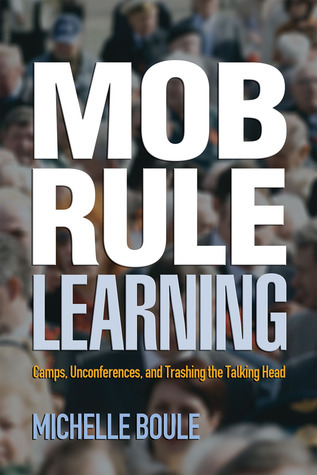I was chosen as an early reviewer for this book. I did not get it for a few months and then it shows up on my doorsteps. I am pretty glad it did. The book, while not perfect, holds the distinction as being the one that introduced me to the formalized mob learning concept.
Michelle Boule is kind of a pioneer since this is the first book that I know of which covers the subject. She does so in a very comprehensive way. Even so, it left me hanging for a few things, partly my fault though. I will explain.
The author comes from the library science area, as such the people she deals with are much more likely to accept these ideas of having unstructured conferences and I guess are much more eager to try out some of these more adventurous ideas. I am an engineer, as such I had a very hard time trying to get something concrete from the book. Again, not the author's fault, I am just not the usual audience that would read this kind of book. She did convey, quite brilliantly, the excitement of discovering new ways to communicate and problem solve. I think she was able to convey a necessarily amorphous concept in a very strong way to the audience. In essence the idea is to let people come up with a way to learn and communicate and come to decisions organically, something that is very hard for people to do. i think the author did a very good job of making her points and relating her own excitement to the readers.
The book is ordered in a very logical way, her emphasis is actually on the practical aspects of utilizing the mob rule methods. Her examples are all very practical and goal oriented. The methods she listed were all very interesting and sounds like they will be very useful. BUT, this is not a how-to book, and I think that is by design. The author's intent is to allow those who read the book to experiment and come to the right ways of accomplishing things by reaching for the solutions ourselves.
I am still grasping with some of the concepts, but this is a challenge that is very interesting and allows me to really think about how we can best convey information AND create a space for productive and innovative discussions, I am planning a conference for 2013 and the book has been a very interesting read, it certainly has sparked many discussions amongst those who are on my organizing committee. I believe we will be using some of the concepts introduced in the book. More importantly, we will follow the spirit of the book and come up with our own way of doing mob rule learning, by using mob rule learning.
I would recommend this book for a variety of reasons, I found it most helpful though in dealing with my own conference planning task.

